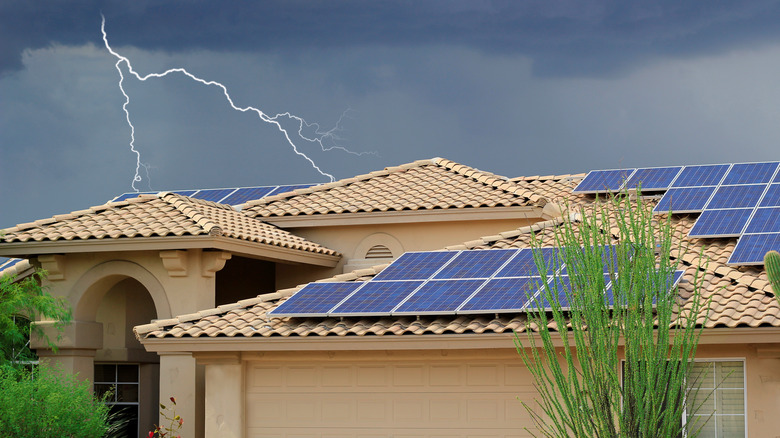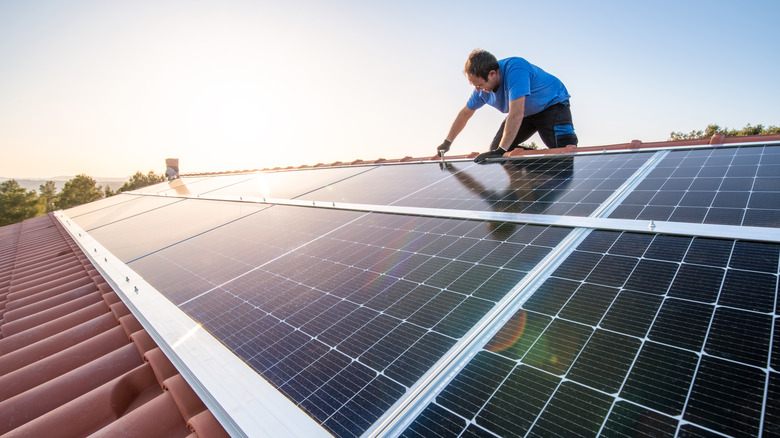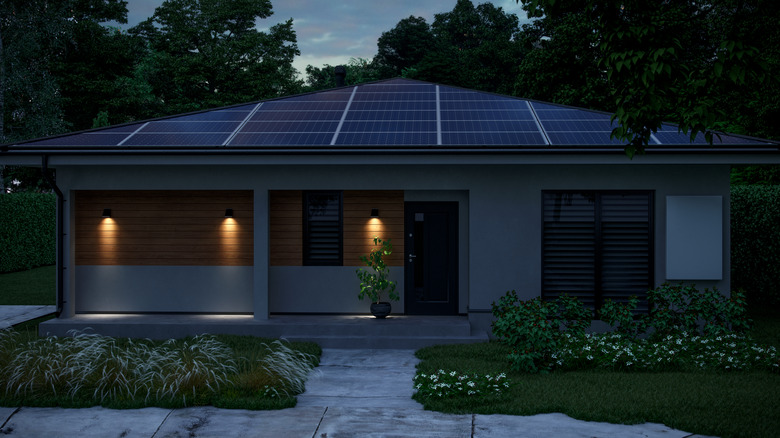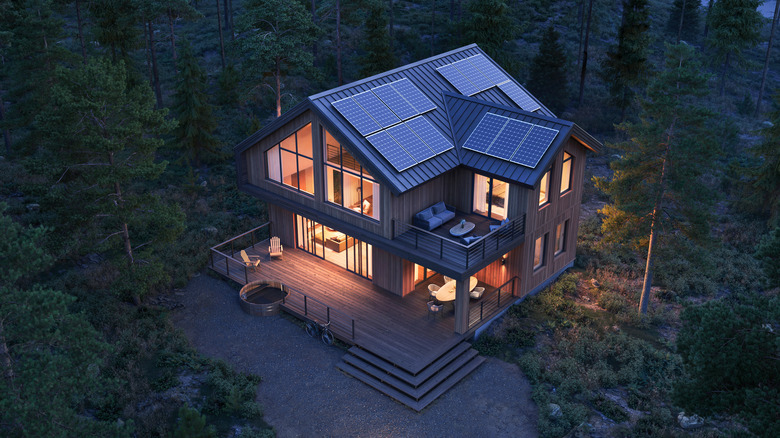Will Solar Panels Work During A Power Outage? It Depends
If you own solar panels or are thinking about installing them, the following question might have crossed your mind: Will they work during a power outage? Unfortunately, there is no simple yes or no answer to this question. Instead, the best answer is: It depends.
The question comes up for a lot of reasons. Perhaps you live in a part of the country where severe weather and the power disruptions that come with it are common, and you're hoping that investing in a solar system will save you from grief when these situations arise. Or, you may like the idea of total energy independence so that you don't need to rely on the local utility grid, especially during unexpected blackouts. While this sounds good in theory, it's a bit more complicated in practice.
If your solar system is tied to the electrical grid, and most in the U.S. are, if the grid goes down, so will the power to your home. While solar panels have changed a lot over the years, if connected, they still function as components on the grid. During a power outage, grid-tied solar systems won't be able to supply electricity to your home. However, if you have an off-grid solar system or invest in a solar battery backup system, you can keep your power on during a blackout.
How solar panels work
Before getting into why grid-tied solar panels won't work during power outages, it's helpful to understand how they work the rest of the time. When the sun is shining and everything is working as it should, your solar panels use photovoltaic cells to convert sunlight into direct current (DC) electricity. Before you can use this electricity to power your house, it must pass through a solar power inverter, which converts DC to alternating current (AC). Once this process is complete, you can immediately use it in your home, or it can be fed back into the grid.
As mentioned earlier, most residential solar power systems are grid-tied, meaning they're directly connected to the public electricity grid. If your solar panels produce excess energy, it's sent to the grid, and you'll often earn credits on your bill through net metering, reducing your monthly electricity bills. When your solar system is connected to the grid, you don't need a battery backup. That's because at night when your solar panels can't generate electricity, you can pull it from the grid. You'll be charged for what you've used minus what you gave back to the grid. When managed correctly, your electricity bill could be close to zero. As long as the grid is up and running, you shouldn't have any problems with this system.
Why grid-tied solar panels don't work during power outages
There are common myths about solar panels; one of those is that solar energy systems can keep supplying power to your home even during a blackout. Unfortunately, it's not that simple. Unless you have an off-grid solar system or a grid-tied solar system with a battery backup, you're going to lose power if the grid goes down. That doesn't mean your solar panels will stop working. They'll keep absorbing sunlight and generating power like they always do. However, you won't be able to use it. This is because grid-tied systems have an anti-islanding safety feature that causes them to automatically shut down during a power outage.
When the inverter detects a power outage, it disconnects the solar system to keep it from back-feeding electricity into the grid. This safety feature protects utility workers from injury as they work to repair the grid. The downside to this safety feature is that you can't use solar energy to power your home during a blackout. Another reason that the inverter disconnects the solar system from the grid is to protect electrical equipment from damage when voltage fluctuations occur during a blackout.
How to keep the lights on during a power outage
Off-grid and battery-based solar systems are two ways you can keep supplying electricity to your home regardless of the grid status. Off-grid solar systems might offer true energy independence, but they're also expensive. Due to the hardware required, it will cost several thousand dollars more to install an off-grid setup than for one connected to the grid. And, of course, once you're disconnected from the grid, you won't have any source of electricity beyond what your solar batteries can store or what a power generator can supply.
For most people who are interested in installing a solar system, the best solution is a grid-tied system with a solar battery backup for when the grid goes down. In such cases, you won't need to install as many solar batteries as with a completely off-grid system, making this option cheaper. According to the U.S. Department of Energy, a solar system with battery backup costs between $25,000-$35,000. If you want to add battery storage to solar panels you've already installed, you'll pay between $12,000 and $22,000 per battery. Depending on the size of your home and energy usage, one or two batteries should provide you with enough capacity to store the excess power from your solar system. Then, if the grid goes down, you'll be able to use the batteries to supply power to your home.



